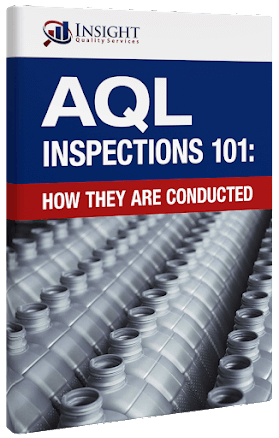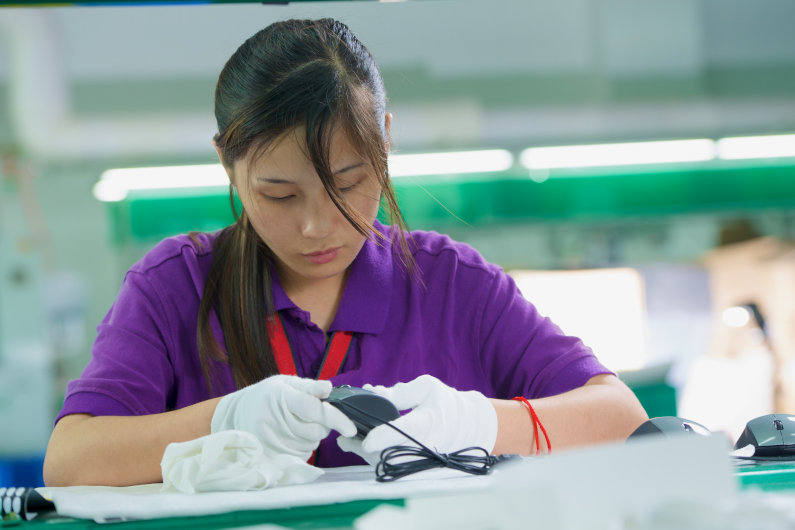5 Important Tips for Dealing with Chinese Manufacturers


Table of Contents
China has carved out a niche as the world’s manufacturing powerhouse. According to UN statistics, it accounted for 28% of all global manufacturing output in 2018. The country attained this position by rapidly evolving its business ecosystem, offering low labor costs and taxes, and establishing less stringent regulations.
In recent years, however, China has shifted to higher-end manufacturing, raising costs along the way. This has further been compounded by the US-China trade war, which has prompted many companies to seek cheaper manufacturing destinations such as Vietnam, Indonesia, and India.
Despite these changing dynamics, China still holds the indisputable position of the world’s leading manufacturer. Thanks to its well-established logistics networks, experience dealing with overseas customers, and diverse manufacturing base.
If you are a new importer looking to do business with Chinese manufacturers, you may find the process daunting and even confusing at first. Here, we give you five essential tips to help you navigate the waters while dealing with Chinese suppliers.
#1: Communicate Clearly
When you identify a Chinese manufacturer, you may find that your biggest hurdle is communication. This is particularly so if the supplier speaks limited English. Miscommunication can lead to costly delays, wrong orders, wrong specifications, or even a breakdown in the business relationship.
To avoid this, when you communicate by email, only use simple, straightforward language, avoiding technical terms and slang. Ask only a few questions each time, as this will allow your supplier to give a more focused response. Similarly, do not send numerous emails on the same topic as this can be confusing.
Where possible, follow up your emails with a call, such as on Skype. Not only does this give you a chance to clarify any matters that arise, but the Chinese culture values personal interaction in business. Social messaging app WeChat is another helpful form of communication that can help you get ahold of your supplier faster than email. WeChat is wildly popular in China and is generally accepted for business communication.
#2: Get Your Pricing Right
If you are looking to run a successful online store or make a killing reselling Chinese imports, then pricing is one of your most significant considerations. The chances are that the initial quotation you get from your supplier is negotiable, so do not be afraid to discuss discounts.
That said, it is true what they say, that ‘cheap is expensive.’ It is advisable not to bargain your suppliers to the ground as they may be forced to cut corners on product quality. They may use inferior materials or cheaper parts to meet your cost since they must make their profits. You may also suffer from lead times as they push your order to the back of the line to deal with better-paying customers.
When it comes to pricing, the best approach is to establish a baseline price for your products, which can be achieved by getting quotes from several factories. This will give you an idea of what prices you are looking at for certain product quality and quantities.
It is also a good idea to negotiate immediately after getting the quote, rather than waiting until you have prototypes and product samples. By this time, you will have invested time and money into the process, and your supplier knowing this, will have no incentive to lower costs.
#3: Choose the Right Type of Supplier
Not all the Chinese companies advertising online will be actual factories. There will be factories — the real site where products are manufactured and assembled. But you will also encounter trading companies that act as ‘brokers’ or ‘middlemen’ between the buyers and the factories.

As a new importer, you must decide which type of entity to deal with as each has its benefits and drawbacks. Initially, you may find it easier to deal with a trading company as it is likely to have staff that are more proficient in English, making things considerably easier.
Similarly, most factories have a minimum order quantity, and as an individual, you may not be ordering quantities large enough to meet this threshold. In this case, your trading company may be able to leverage its relationship with the factory to have them manufacture your product.
Of course, to make its money, a trading company marks up the price offered by the factory. This means that you might be paying more than you would when dealing with a factory directly. Weigh the benefits you will get from using a trading company against dealing directly with a factory before making your decision.
#4: Understand the Impact of Chinese Holidays
The Chinese New Year is a significant holiday that takes place over three weeks, anywhere between late January and late February. This holiday results in a mass shutdown of factories as workers leave the cities to celebrate with their families in other parts of the country. Failing to account for the Chinese New Year can adversely impact your supply chain and end up costing you thousands of dollars in delayed shipments.

It isn’t easy to imagine a holiday that shuts down an entire country, but this is what CNY does, so as an importer, it’s best to plan around it. Because everyone will be rushing to put in orders just before the shutdown, manufacturing prices will likely go up, as will shipping charges.
To avoid these hiked prices, do a thorough stocktaking to know what you have enough of and what you need to order before CNY. This is not the time to do bulk orders if it can wait. It may also take up to a month for the factories to get back to normal production after the celebrations, so plan ahead for this.
Other than the CNY, China celebrates several other holidays throughout the year. It is best to stay in constant communication with your Chinese supplier to understand any anticipated delays.
#5: Build a Strong Relationship
You will have done due diligence on your Chinese supplier, such as confirming their physical address, getting references, and even samples of their work. While this is an essential first step, it is highly recommended that you visit the supplier in person where possible.
Visiting a factory will allow you to understand how your product is manufactured, whether everything is done in house or there is any outsourcing involved. This is also a great chance to discuss any customization you may have in mind for your products.
Chinese business culture places a premium on personal interaction. Sharing a meal with your suppliers will establish a human connection and help build trust. An in-person visit can also lead to better prices or more favorable payment terms.
Additional Thoughts on Dealing With Chinese Manufacturers
Even with changing dynamics, China remains the world’s biggest manufacturing destination. As a new importer, importing from China will allow you to choose from a wide variety of manufacturers, and well-established logistics will ensure the reliable transportation of your products.
That said, navigating the world of importation can be daunting. Importing from a different country has its challenges, particularly one where English is not a dominant language. Being overseas means that you have to make a buying decision based on product samples, and it is not always a guarantee that the final product will be of similar quality.
For a smoother process, consider hiring a third-party product inspection company to inspect your goods before they ship. An inspection company is an independent entity that checks manufactured goods for quality, safety, and compliance. This inspection can be done before, during, or after production to ensure that the product you get meets all your requirements.
Free Guide
How to Prepare for an Inspection
Are you thinking of hiring a third-party inspection company? If so, you need to be properly prepared. No one knows your product better than you do. So, make sure you give your service provider the information they need to ensure that your inspections are a success. Download this free guide to successfully preparing for your product inspections.

AQL Inspections 101: How They are Conducted
Authors



